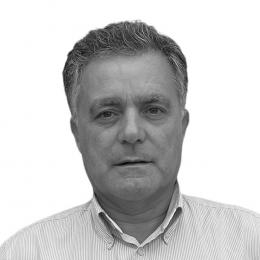Carlos Costa joined the Basel Institute on Governance in January 2022 as a Senior Specialist, Investigations at the International Centre for Asset Recovery in Mozambique.
Carlos started his professional career 30 years previously as a criminal investigator in the Central Narcotic Drugs Trafficking Investigation Department of the Portuguese Judiciary Police.
In 1994 he was one of the founding members of the Money Laundering Team, which later became the Financial Intelligence Unit (FIU), specialising in the analysis of criminal information on transnational organised crime.
Between 2008 and 2012, he conducted trainings on organised crime, human rights and police ethics and deontology at the Criminal Police Academy of the Portuguese Judiciary Police. He served as a trainer for several criminal investigation organisations, namely in Cape Verde, Guinea-Bissau, Angola, Mozambique, East Timor and in the Civil Police of the State of São Paulo, Brazil.
From 2012 to 2014, he was the overall training coordinator of the CFJ (Legal Training Centre), the organisation responsible for professional training of future judges, prosecutors and public defenders, private attorneys, criminal police officers and correctional officers in East Timor.
Between 2015 and 2016 he coordinated information analysis procedures related to suspicious transaction reports submitted to the Portuguese FIU and collaborated with several international services responsible for preventing and combatting money laundering and terrorist financing.
In 2017 he was appointed National Coordinator of the Portuguese Asset Recovery Office (ARO/GRA).
Between 2019 and 2021, he was responsible for coordinating and managing the national and international cooperation projects of the PCIC (Scientific and Criminal Investigation Police) of East Timor. In this context, he organised and coordinated the elaboration the organisation’s 2020–2030 Strategic Plan and served as the training programme manager and coordinator of this plan. He provided also mentoring and follow-up on criminal cases.
Carlos has a degree and a master's degree from the University of Lisbon in History and Social and Political Sciences.

